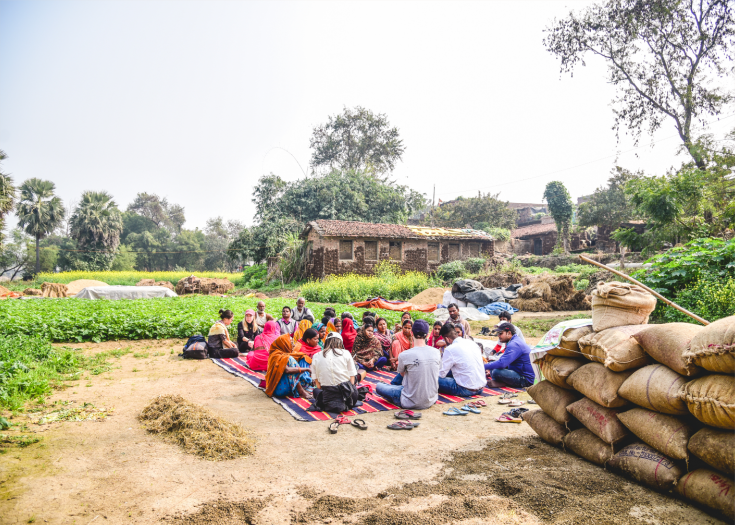Adaptive Learning and Systems Analysis for JSPVAT

A complexity-aware, systems-informed external evaluation of an agricultural value-chain intervention in Bihar, India
PROJECT OVERVIEW
As disruptions to global food production systems increase due to challenges from climate change, pandemics, political instability and other factors, the capacity for agricultural systems to adapt, innovate, and transform themselves becomes paramount. All agricultural innovation processes take place within a complex local system context, which influences the trajectory and outcomes of those innovation efforts. This project involves serving as the external evaluator and adaptive learning partner for an agricultural transformation initiative, JSPVAT, that is being implemented through a partnership between the State of Bihar, the World Bank, and the Bill and Melinda Gates Foundation.
The complexity of the JSPVAT intervention model, combined with the complexity of the agricultural systems into which JSPVAT is intervening, requires an evaluation approach that is itself “complexity-aware,” in terms of taking system complexity into account, both in the overall evaluation framework and specific research methodologies employed. This project builds conceptually and methodologically on previous work conducted by the Local Innovation Group in complexity-aware evaluation, as well as prior work in agricultural systems mapping and system-level monitoring conducted by the MIT Humanitarian Supply Chain Lab in collaboration with George Washington University.
PUBLICATIONS




